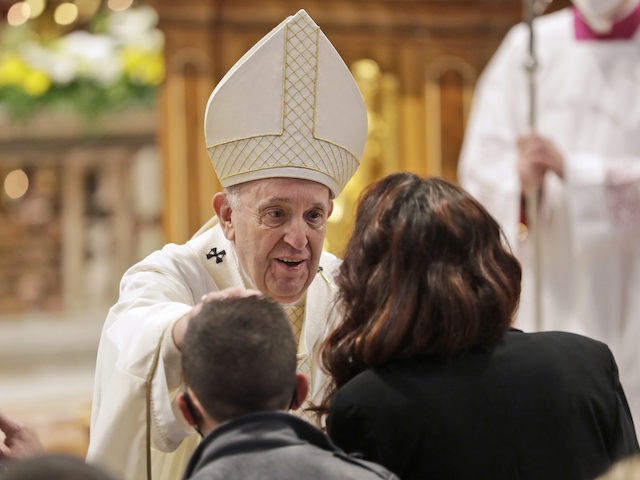ROME, Italy — Pope Francis said Tuesday that the world’s assorted religions are all “different ways of coming to God,” representing a “richness” deserving of respect.
“If in the past, our differences set us at odds, nowadays we see in them the richness of different ways of coming to God and of educating young people for peaceful coexistence in mutual respect,” the pope said in an address to participants in the meeting “Religions and Education: Towards a Global Compact on Education.”
Francis’ conviction that all religions are paths to God sets him at odds with his predecessor Pope Benedict XVI, who asserted that a differentiation among religions is essential.
Some religions “teach brotherhood and peace and are therefore of enormous importance to integral human development,” Benedict wrote. “Some religious and cultural attitudes, however, do not fully embrace the principle of love and truth and therefore end up retarding or even obstructing authentic human development.”
Certain religions “do not oblige men and women to live in communion but rather cut them off from one other in a search for individual well-being, limited to the gratification of psychological desires,” he noted.
Moreover, “some religious and cultural traditions persist which ossify society in rigid social groupings, in magical beliefs that fail to respect the dignity of the person, and in attitudes of subjugation to occult powers,” he wrote.
Years earlier, as a cardinal he had observed that there are “deviant, esoteric forms of religion on offer.” There are “pathological” forms of religion, religions that are “obviously sick,” and religions that are “destructive for man.”
In this regard, “anyone who sees in the religions of the world only reprehensible superstition is wrong,” he wrote, but “anyone who wants only to give a positive evaluation of all religions… is equally wrong.”
Tuesday’s address was not the first time Pope Francis seemed to suggest that all religions lead to God and thus a plurality of religions is, in fact, willed by God.
In February 2019, Francis signed a joint statement with the Grand Imam of Al-Azhar Ahmad Al-Tayyeb, which asserted that God wills a plurality of religions just as He wills a plurality of colors, sexes, races, and languages.
“The pluralism and the diversity of religions, color, sex, race and language are willed by God in his wisdom, through which he created human beings,” the statement declared.
Not long afterward, the former doctrinal chief of the U.S. bishops’ conference, Father Thomas Weinandy, published an article criticizing the Abu Dhabi statement, insisting that the text undervalues the person of Jesus and undermines the Gospel itself.
The existence of a variety of colors, races, and languages in humanity is very different from a variety of contradictory truth claims about God’s identity and way of acting, Father Weinandy wrote.
Pope Francis is noted for his ambiguous statements, the priest said, but the Abu Dhabi text is “the most egregious.”
“By implication, it not only devalues the person of Jesus, but it also, and more so, strikes at the very heart of God the Father’s eternal will. Thus, such studied ambiguity undermines the very Gospel itself,” he wrote.
With his vague and imprecise language, the pope plays right into the hands of contemporary academics and pundits who argue that Christianity can no longer claim itself to be the one true religion, he said.
According to Catholic belief, the priest added, Jesus Christ is “the universal Savior and definitive Lord” and cannot be compared to any other religious founder, guru, or guide.
Weinandy said that one would like to think “that Pope Francis unwittingly, and so not consciously aware of the doctrinal implications of his signature, did not intend what the document seems to declare.”
“Regardless, no one, not even a pontiff, can undo or override the will of God the Father concerning Jesus his Son,” he said.
“In his love the Father has given the world Jesus his Son, and ‘there is no other name under heaven given among men by which we must be saved’ (Acts 4:12),” he added.

COMMENTS
Please let us know if you're having issues with commenting.